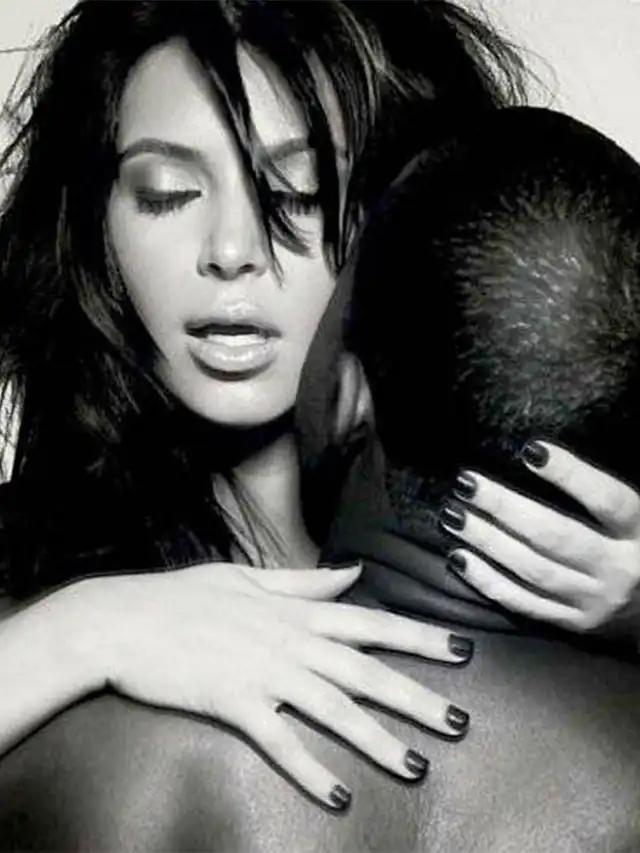Last Updated on June 11, 2024 by Paola Castillo
The butterflies, excitement, and giddiness you feel at the start of a relationship can feel intense and sometimes addictive. When you pair up with someone new, you may become infatuated with them and experience a powerful reaction whenever you see them.
Chemicals like dopamine light up your brain’s pleasure center and make you want to spend all your time with your new sweetheart. The feeling can be powerful, pleasurable, and addictive. Nevertheless, it’s important to remain aware of potential toxic relationship red flags, especially during the highs of a relationship.
When you’re consumed by these strong feelings of infatuation, you can become blinded to your significant other’s faults or misfires. You may wonder how long infatuation should last. Maybe you put them up on a pedestal or think you’re in love with them because of all the good feelings you associate them with.
You might also miss the warning signs that your partner’s behavior is toxic because of that natural high you’re experiencing. Most importantly, you should remember to pay attention to your intuition, gut feelings, and deeper emotions. They are our mind’s best way of determining if a person is the one or if you should go separate ways.
Major Relationship Red Flags That Can Lead to a Toxic Relationship
You Make Excuses for Your Partner

Everybody has bad days, but if your partner is moody or quick to anger most of the time, that’s a bad sign. You shouldn’t make excuses for your partner’s poor behavior. They may have insomnia or a terrible boss, but that doesn’t give them a free pass to yell at you regularly to serve to be treated well, so don’t settle for less. That includes the bedroom as well. Sex is the glue to any solid relationship, and it’s one of the best times to show love and consideration. If something feels off during this time together, then say something.
You Hope Your Partner Will Change

The next toxic relationship red flag is changed. You shouldn’t go into a relationship thinking that you can change your partner. Getting rid of bad habits and unlearning negative behaviors takes a lot of hard work. Your partner has to decide for themselves if they’re ready to tackle those issues.
You have to remember that you’re dating your partner, not their potential. This is also why asking about their various preferences is so important. Some people won’t or can’t change their preferences, and it’s better to know in advance.
You Don’t Feel Heard

When you bring up problems or concerns about your relationship, your partner should listen to you and try to understand where you’re coming from. They shouldn’t get defensive, dismiss your feelings, or tell you that you’re overreacting. Especially if you routinely feel them shutting themselves off from you, this is a toxic relationship red flag.
If your attempts to communicate consistently leave you feeling frustrated, unsupported, or unheard, your partner probably won’t be able to meet your emotional or sexual needs. They need to work on themselves first. Unfortunately, you can’t force someone to change, so it might be time to walk away.
You Don’t Feel Respected

You don’t have to see eye-to-eye on everything with your partner. It’s okay to have different values, beliefs, and opinions. These differences can enrich a relationship. However, respecting those differences is the key to having a happy, healthy relationship.
If you feel disrespected, your partner probably isn’t doing a good job of accepting and respecting your values. Your partner shouldn’t make sarcastic comments about your opinions or try to change your mind. Instead, they should at least attempt to understand your beliefs and find common ground with you. If your partner doesn’t even try to see your side of things, your different value systems might always be a point of contention in your relationship. Ultimately, you’ll have to decide whether or not that’s a deal breaker.
You Feel Insecure

It’s normal to feel insecure at the start of a relationship. You might worry that your flaws will drive your new partner away. It’s not normal, however, for your partner to point out all of those flaws and criticize you for them.
A partner who gives you backhanded compliments or insults you, even in a joking way, doesn’t have your best interests at heart. Your partner shouldn’t tear you down or try to undermine your confidence. They should genuinely compliment you, build you up, and support you. This should include your time together in the bedroom. It’s perfectly natural to feel awkward trying new things, but your partner should always try to create a safe space for you.
You Don’t Trust Your Partner

If your partner has already lied to you or broken their promises so many times that you don’t trust them anymore, that’s a huge toxic relationship red flag. It’s almost impossible to build a healthy relationship with someone you can’t trust or rely on.
You’ll always doubt everything they say, and you’ll never be able to feel safe and secure in that toxic relationship. You may even resort to unhealthy behaviors like going through your phone to see if they’re telling you the truth. Don’t drive yourself crazy by staying in a toxic relationship with someone who lies to you. You deserve honesty and respect from your partner.
You’re Always Compromising

Compromise is an important part of any relationship. But if you feel like your wants and needs are rarely a priority, that’s a bad sign. You shouldn’t have to accommodate your partner all the time just to keep the peace.
Remember: your preferences are important too, and it’s essential that your partner respects them. For example, you should get to pick where you go for dinner and what movie you watch just as often as your partner. If your partner can’t compromise on trivial things like date night activities, that’s a pretty big red flag. Sexual activity should also be a joint compromise, so if your partner is always trying to get you to change in the bedroom to what they like, then you might want to reconsider your relationship.
You Don’t Want to Introduce Them to Friends and Family

For the most part, you should be excited and proud to introduce your partner to your family and friends. Even if your family is rough around the edges, you can trust a good partner to be respectful. You might even make an extra effort to get along with them.
However, if you’re worried that your family won’t like your partner or that the meeting will go sideways, you should examine those feelings. Do you fear your partner will be rude to your family? Are you embarrassed by your partner deep down, and that’s why you don’t want to bring them home? Figuring out why you don’t want them to meet your family can tell you a lot about your relationship and how you feel about your partner.
You’re Not Truly Happy

Every relationship has ups and downs. However, if yours is making you unhappy more often than not, it’s probably time to reconsider things. Your new love interest should be adding something positive to your life, not dragging you down or stealing your happiness with their drama.
If you’re always recovering from a fight or bracing yourself for the next disappointment, you might be better off single. And if a person makes you feel less than your value, then it’s time to move on.
Conclusion
At the end of the day, relationship red flags can be hard to spot when you’re already infatuated with your partner, especially when you haven’t been in a relationship in a while. The key is to stay alert, reflect carefully on a new relationship, and figure out what’s best for you before investing too much of your time, energy, and emotion. That’s not to say you should feel paranoid or pessimistic about a relationship. Instead, just simply remain aware of what you want.
Why Do Men Always Stare at Women in Leggings? Unpacking the Attraction | 2024
Leggings have become a staple…
Top Sexual Fantasies for Men: Explore the 6 Ultimate Desires
Sexual fantasies tend to push…
20 Kim Kardashian Shares the Best Sex Positions Used in Ray J Sex Tape
Kim Kardashian blew up the…
Women’s Biggest Sexual Fantasy | Dr. Jordan Peterson Psychologist
In this YouTube lecture, Peterson…
What are the 5 red flags in a dating relationship?
A dating red flag is a cautionary symbol that occurs during a date and might point to a potential issue, misunderstanding, or obstacle. Talking exclusively about oneself, avoiding difficult talks, spreading rumors about their ex, and withholding affection are a few examples of dating red flags.
What are some common red flags?
Some red flags can be resolved through dialogue and counseling. But some behaviors should never be accepted. Infidelity, gaslighting, domineering conduct, irate outbursts, and physical, sexual, or emotional abuse are major red signs.
What is the number 1 red flag in a relationship?
Excessively dominating actions. A typical relationship warning sign is controlling behavior that goes too far. People who attempt to influence your actions, choices, or beliefs are more focused on their desires than what is best for you.
What is a toxic relationship?
A toxic relationship is defined by detrimental behaviors that adversely affect each partner’s well-being. Poor communication, manipulative conduct, jealousy, lack of respect, unrelenting criticism, loneliness, and emotional or physical abuse are some warning signs. Maintaining mental and emotional health depends on recognizing these symptoms, and for individuals in unhealthy relationships, getting help is critical.
How to leave a toxic relationship?
Recognizing the negative effects of a toxic relationship, asking friends, family, or a therapist for help, and, if required, putting together a safety plan are all important steps in ending it. Create a network of support, express the repercussions of crossing boundaries, and set clear boundaries. Make thoughtful exit plans, putting your physical and emotional well-being first. It can be very important to record instances and seek expert assistance. Despite any manipulation, stand by your decision and think about severing all ties with the toxic individual to make room for recovery. If you’re in urgent danger, get help from the police in your area or a domestic abuse hotline.



